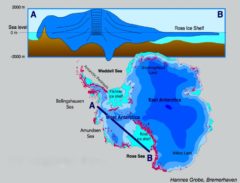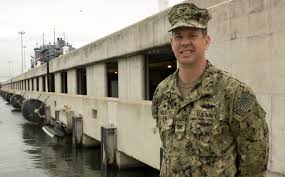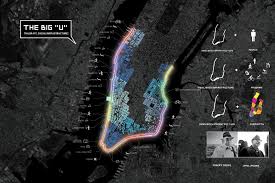The Water Will Come: 5 Takeaway Review


Antarctic Bowl Shape 
Norfolk Military Base 
Big U of NYC
It was eerie watching the water rise slowly and steadily over the wall separating the garden from the tidal marsh at the edge of a small city in northern Florida , for the experience matched the accounts given by coastal dwellers around the world,which are described in the informative book The Water Will Come by Jeff Goodell. I shall provide you with 5 Takeways from the book and then tell you why you may wish to read it yourself.
- Antarctic Game Changer: The glaciers of Antarctica (seven times the size of Greenland), sit in a bowl, created by glacial pressure, with a lip about 1000 below sea level. Danger lurks in the warming ocean below. If glaciers on the lip melt, they cease preventing the massive ice in the bowl from making a gravitational powered slide into the ocean. The resulting rise in the ocean for New York could be 13 feet. Interaction of gravity and the earth’s spin send Antarctic water to the northern hemisphere. (Ch 3)
- Real Estate Values Erosions: Homeowners in areas vulnerable to flooding will face loss of home values for several reasons: currently underpriced flood insurance rises in cost, banks require flood insurance for loans, flood insurance becomes unavailable. True flooding risk has not been built into home prices because the housing financial structure both masks and passes risk forward to the end buyer. Rising property taxes to pay for needed local infrastructure will also lower home selling prices. The real estate industry and local governments have avoided raising income and property taxes by building and selling more real estate, a strategy that will be undermined by serious flooding. (Ch 5)
- Resiliency planning inadequacy: Diverse approaches to protection of cities around the world from rising oceans makes interesting and informative reading, but then leaves one with the disturbing realization that all of the plans, no matter how well thought out and engineered (and not all are), have “fatal flaws” that make the cities vulnerable to either more ocean rising or unfortunate but possible coincidence of events. Reasons for the inadequacies range from basic design to budgetary ‘reluctance.’ (Ch 6,7) The dilemma of island states is also discussed (Ch 8)
- Military Vulnerabilities: Two sorts of military vulnerabilities are discussed. One is the increasingly recognized way in which hardship conditions such as drought and flooding caused or exacerbated by climate change can give rise to violence, civil strife and war. (see Tropic of Chaos by C. Parenti ). The second is that much of the US military infrastructure is located on coasts. Not only are military bases vulnerable to and already experiencing some flooding, they are dependent on local governments to invest in local flood protection for roads and other necessary complementary infrastructure. Both the Congress itself and local governments have avoided acknowledging the need for and making such infrastructure investments. Moving the military establishments inland would be another very large political and financial challenge. (Ch 9)
- Exacerbating inequality: The author acknowledges the very basic injustice caused by the effects of climate change being more severe for populations that did not burn the fossil fuels causing the problem, and points to at least three other likely sources of inequality exacerbation. First, lower income communities are especially likely to suffer loss in home values and community infrastructure. Second, resiliency planning, if designed to protect wealthier areas of a city, as is the ‘Big U’ wall being planned for New York City, can result in more flooding in poor areas, such as Red Hook in New York City. Third, it is possible that local governments could be required by law suits on “takings” to spend their funds to protect the coastal property of the wealthy at the expense of the rest of the community. A precedent has been set in Florida courts which interpreted a local government decision not to continually maintain eroding coastal roads leading to the homes of wealthy residents as an illegal “taking”. (Ch 5,10, 12)
You may wish to read the book for several reasons. His first-person tale includes interviews with persons of varying types of power such as President Obama, real estate moguls, water protection engineers and military officials. One of the values here is insight into the thinking of decision makers. He travels to and provides examples from around the world, with a lot of attention to Florida, a location familiar to many US readers. He discusses strategies that could help, although he is often forced to note the neglect, abuse or undermining of those strategies.
References:
Goodell, Jeff. 2017. The Water Will Come. New York: Back Bay Books.
Parenti, C. “Tropic of Chaos: Climate Change and the New Geography of Violence,”New York: Nation Books.
